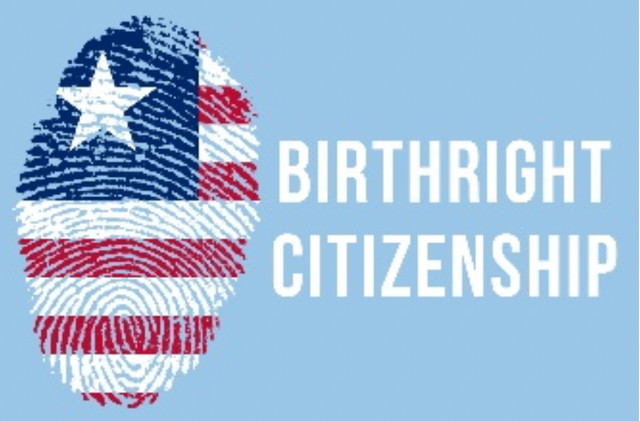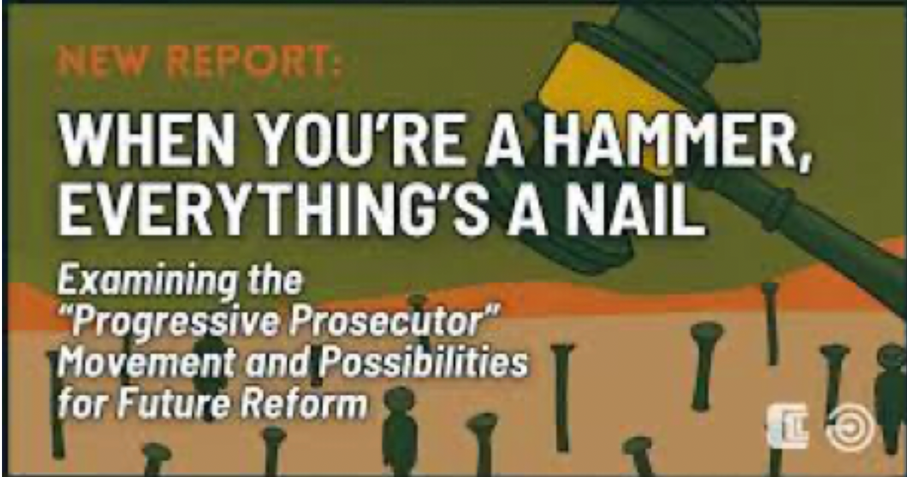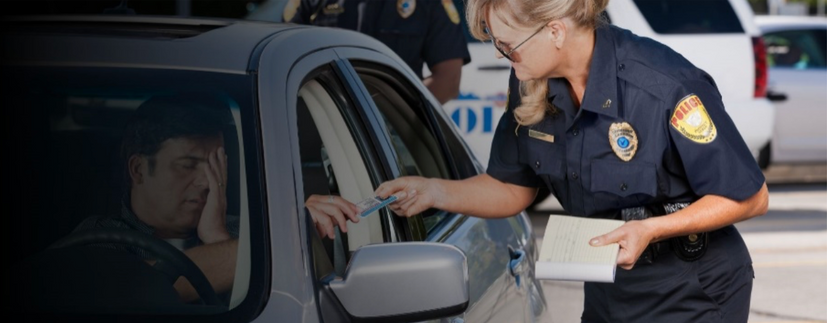Your innocence does not mean the government will not be watching you.
Your innocence does not mean the government will not be watching you
Jeremy Bentham advanced the idea of the Panopticon, a prison designed around a central surveillance tower from which a warden could see in- to all of the cells. In the Panopticon, prisoners had to conform their activities to those desired by the prison staff because they had no idea when they were being watched. As Bentham describes this system, “[t]o be incessantly under the eyes of an Inspector is to lose in fact the power of doing ill, and almost the very wish.” Jeremy Bentham, Panopticon, in 3 OPINIONS OF DIFFERENT AUTHORS UPON THE PUNISHMENT OF DEATH 321, 328 (Basil Montagued., 1816)
Courts must decide if Americans are to be subject to the conditions of Panopticon.
People in America are subject to mass surveillance by the government in various ways. Technology can now allow for governments to “record nearly everything that is said or done within their borders—every phone conversation, electronic message, social media interaction, the movements of nearly every person and vehicle, and video from every street corner.” JOHN VILLASENOR, RECORDING EVERYTHING: DIGITAL STORAGE AS AN ENABLER OF AUTHORITARIAN GOVERNMENTS 1, 3 (2011); Gregory Brazeal, Mass Seizure and Mass Search, 22 U. PA. J. CONST. L. 1001, 1008 (2020) (describing “[t]he proliferation of digital sensors and digital records” that allow the government “to conduct digital surveillance on a mass scale”). Moreover, “[a]s artificial intelligence evolves, it magnifies the ability to use personal information . . . by raising analysis of personal information to new levels of power and speed.” Cameron F. Kerry, Protecting Privacy in an AI-Driven World, BROOKINGS (Feb. 10, 2020), https://www.brookings.edu/articles/protecting-privacy-in-an-ai-driven-world/
Clearly the U.S. Supreme Court has indicated that courts must reject any “mechanical interpretation of the Fourth Amendment” since doing so would leave citizens at the “mercy of advancing technology.” Kyllo v. United States, 533 U.S. 27, 35 (2001) At the heart of this issue are the various government databases that store everything from your name and all sorts of identifying information from your address, phone number, social security number, driver’s license number etc. Given the huge number of databases there are mistakes made in both the collection and storage of data in these databases. Commenting on inaccurate electronic databases in law enforcement, Justice Ginsburg explained:
Electronic databases form the nervous system of contemporary criminal justice opera- tions. In recent years, their breadth and influence have dramatically expanded. Police today can access databases that include not only the updated National Crime Infor mation Center (NCIC), but also terrorist watchlists, the Federal Government's employee eligibility system, and various commercial databases. . . . The risk of error stemming from these databases is not slim.
. . Government reports describe, for example, flaws in NCIC databases, terrorist watchlist databases, and databases associated with the Federal Government's employment eligibility verification system Inaccuracies in expansive, interconnected collections of electronic information raise grave concerns for individual liberty. Herring v. United States, 555 U.S. 135, 155 (2009) (Ginsburg, J., dissenting).
One example of mass surveillance is the government use of automatic license plate readers (ALPR). “ALPR systems are a form of mass surveillance, plain and simple.” Cooper Quintin & Dave Maass, License Plate Readers Exposed! How Public Safety Agencies Responded to Major Vulnerabilities in Vehicle Surveillance Tech, ELECTRONIC FRONTIER FOUND. (Oct. 28, 2015), https://www.eff.org/deeplinks/2015/10/license-plate-readers-exposed-how-public-safety-agencies-responded-massive. Automated license plate readers (ALPRs) are high-speed, computer-controlled camera systems that are typically mounted on street poles, streetlights, highway overpasses, mobile trailers, or attached to police squad cars. The cameras can be concealed so that passing drivers do not know that their vehicles are being scanned. Leonardo, Conceal Your System Components With ELSAG Custom Solutions (2019). https://www.leonardocompany-us.com/lpr/alpr-products/custom-solutions.
ALPRs record the license plate numbers of the guilty or innocent, seven days a week, 24 hours a day. Whether they are suspects in a crime or simply someone in range of the camera. And the information is not stored just in the local community but available nationwide. See, David J. Roberts & Meghann Casanova, Int’l Ass’n of Chiefs of Police, Automated License Plate Recognition (ALPR) Use by Law Enforcement: Policy and Operational Guide 9 (Aug. 2012). https://www.theiacp.org/sites/default/files/IACP_ALPR_ Policy_Operational_Guidance.pdf. In other words, the data created by the ALPR and frequently stored by private corporations, as well as government agencies, is stored in a giant centralized government surveillance network.
What is interesting is that many police departments do not want information about their use of ALPRs subject public scrutiny. Dave Maass & Jeremy Gillula, What You Can Learn from Oakland’s Raw ALPR Data, eff, Jan. 21, 2015, https://www.eff.org/deeplinks/2015/01/what-we-learned-oakland-raw-alpr-data ; Mapping Flock cameras, police 'secrecy' varies by department (2023), https://www.fox6now.com/news/mapping-flock-cameras-police-secrecy-department.
Often a justification for ALPRs is that they reduce crime. The Center for Evidence-Based Crime Policy at George Mason University issued the first random-sample national survey of police agencies and the first adjacent-jurisdiction, randomized controlled experiment on the impact of ALPRs on crime. It was found that APLRs do not “result in a reduction of crime generally.” Lum, C., L. Merola, J. Willis and B. Cave. License Plate Recognition Technologies for Law Enforcement: An Outcome and Legitimacy Evaluation (SPAWAR and National Institute of Justice 2010), p. vii, 50, chrome-extension://efaidnbmnnnibpcajpcglclefindmkaj/https://cebcp.org/wp-content/evidence-based-policing/LPR_FINAL.pdf
Parenthetically, the benefit from installing Ring cameras is equally questionable as what was found about ALPRs. Tim Cushing, Amazon's Free Doorbell Cameras Only Cost Law Enforcement Agencies Their Dignity And Autonomy, (techdirt July 30, 2019) (Ring camera use police force as de facto advertising firm.
Police give these cameras to residents with the understanding that they’ll hand over footage from these cameras whenever officers ask for it.), https://www.techdirt.com/2019/07/30/amazons-free-doorbell-cameras-only-cost-law-enforcement-agencies-their-dignity-autonomy/
Moreover, ALPRs can encourage sloppy police work. On March 30, 2009, Denise Green, a 47 year-old black woman with no criminal record, was pulled over by multiple San Francisco police officers. Between four and six officers pointed their guns at her—one had a shotgun—and told her to raise her hands above her head and exit her car. She was ordered to kneel, and she was handcuffed. A license plate reader had misread her plate (seeing a 7 where there was actually a 3) and alerted officers that her car, a Lexus, was stolen. But if police officers had performed the most basic, visual check to ensure the information coming from the license plate reader system was accurate, they would have realized that her license plate wasn't a match, and that the stolen car in question was a gray GMC truck, while Denise Green was driving a burgundy Lexus. Green v. City of S.F., 751 3d 1039 (9th Cir. 2014).
In addition to the problem of ALPR’s misreading license plates, there is a problem with how the data from ALPRs are stored. An investigation found more than 100 exposed ALPR systems online, “often with totally open web pages accessible by anyone with a browser.” Cooper Quintin & Dave Maass, License Plate Readers Exposed! How Public Safety Agencies Responded to Major Vulnerabilities in Vehicle Surveillance Tech, ELECTRONIC FRONTIER FOUND. (Oct. 28, 2015), https://www.eff.org/deeplinks/2015/10/license-plate-readers-exposed-how-public-safety-agencies-responded-massive; see also Kenneth Lipp, License to Connive: Boston Still Track Vehicles, Lies About It, and Leaves Sensitive Resident Data Exposed Online, DIG BOS. (Sept. 8, 2015), https://digboston.com/license-to-connive-boston-still-tracks-vehicles-lies-about-it-and-leaves-sensitive-resident-data-exposed-online/
Likewise, ALPR data can paint an intimate portrait of a driver’s life and even chill First Amendment protected activity. ALPR technology has been used to target drivers who visit sensitive places such as health centers, immigration clinics, gun shops, union halls, protests, or centers of religious worship. See, The Danger of License Plate Readers in Post-Roe America (July 7, 2022), https://www.wired.com/story/license-plate-reader-alpr-surveillance-abortion/ In 2010, Immigration and Customs Enforcement enlisted local police officers to use ALPRs to gather information about gun-show customers. Devlin Barrett, Gun-Show Customers’ License Plates Come under Scrutiny, Wall St. J. (Oct. 2, 2016), https://www.wsj.com/articles/gun-show-customers-license-plates-come-under-scrutiny-1475451302.
APLRs represent the kind of standardless and unconstrained discretion evil the Fourth Amendment was designed to require judicial supervision to prevent abuse. Judicial supervision for the dragnet searches conducted by ALPRs and gathered by police officials after the fact need to be done only after a warrant
has been issued. “[P]ersons in automobiles on public roadways may not for that reason alone have their travel and privacy interfered with at the unbridled discretion of police officers.” People who drive a vehicle are entitled to protection from arbitrary government power by “too permeating police surveillance.”











